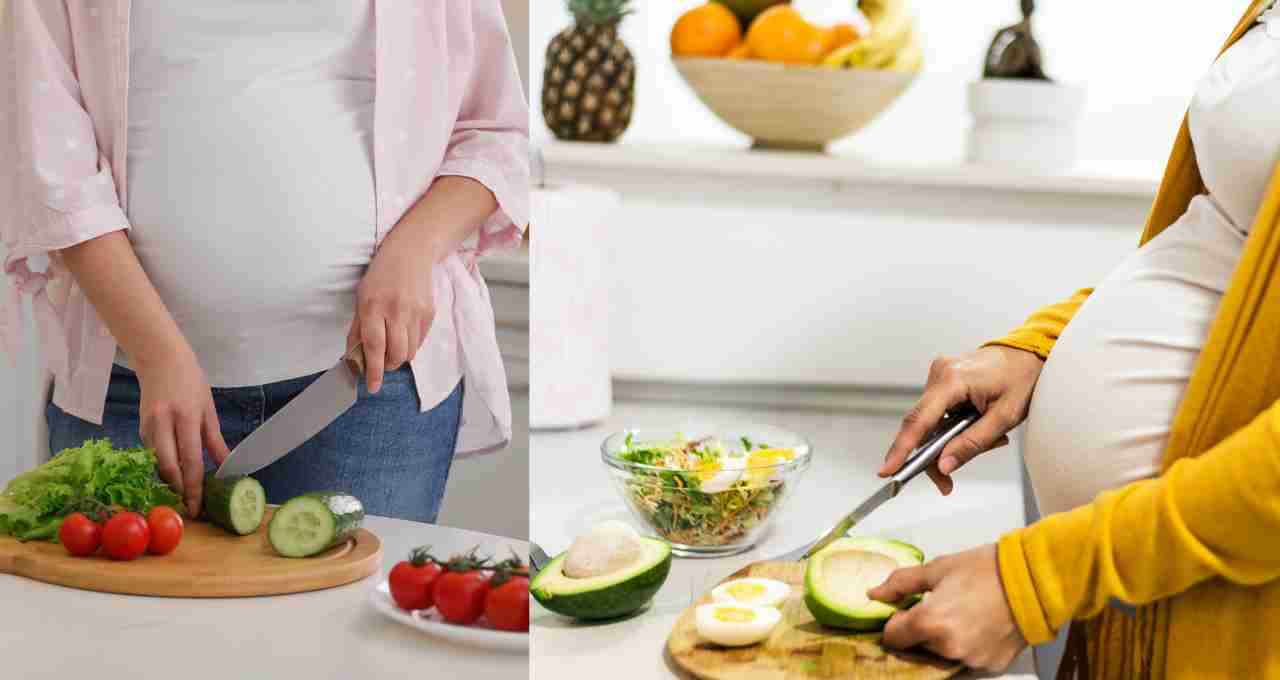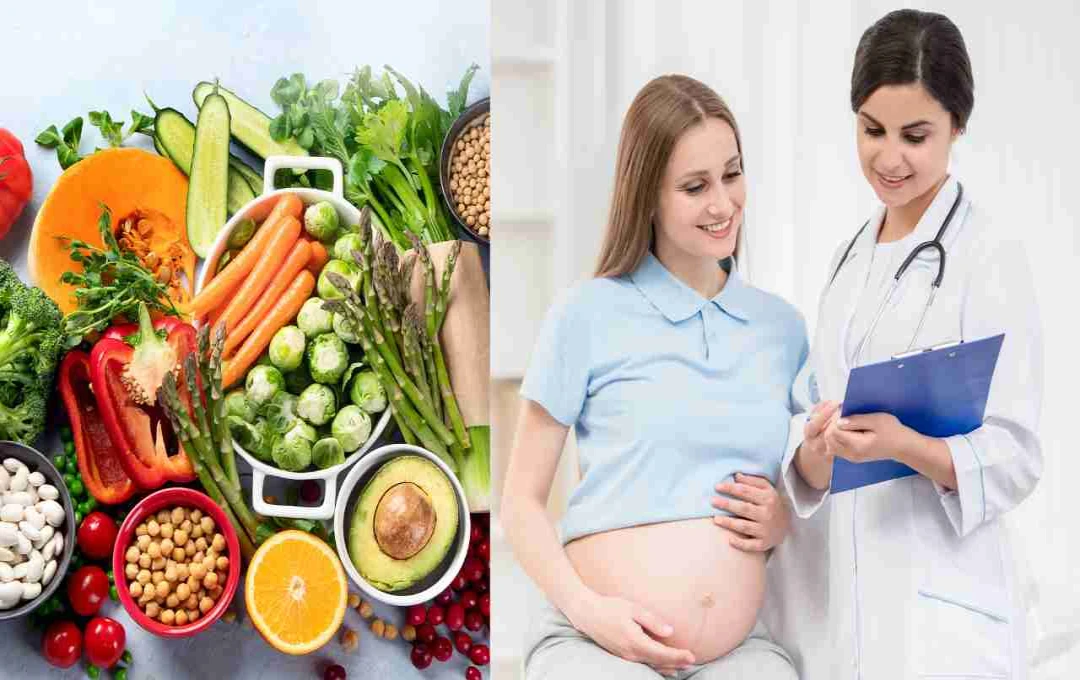Proper diet and nutrition are essential when preparing for pregnancy. In the first trimester, consume folic acid, milk, and fruits; in the second trimester, include calcium and protein-rich foods such as milk, cheese, and fish; and in the third trimester, focus on protein and iron. Avoid junk food, undercooked meals, excessive caffeine, and intoxicants.
Pregnancy Diet Guide: Preparing for pregnancy is not just mental, but also physical and nutritional. According to gynecologist Dr. Chanchal Sharma, a balanced diet ensures better health for both mother and baby, making the pregnancy journey smoother. In the first trimester, consume folic acid-rich vegetables, fruits, and milk; in the second, include calcium and protein-rich foods; and in the third, focus on protein and iron-rich meals along with hydration. Additionally, it is important to avoid junk food, excessive tea-coffee, and intoxicants.
Importance of Nutrition During Pregnancy
During pregnancy, a woman's body undergoes various physical and hormonal changes. These changes necessitate increased nutritional intake. If a woman consumes a balanced and nutritious diet during this period, her immunity remains b, and the unborn baby develops correctly. According to Dr. Chanchal Sharma, incorporating nutritious foods into the diet during pregnancy benefits both the mother and the baby.
What to Eat in the First Trimester

The initial three months of pregnancy are considered very sensitive. During this period, the foundation of the baby is laid. Therefore, the diet at this time should include folic acid-rich foods. Green leafy vegetables, spinach, and broccoli are very beneficial. Along with these, nutrient-rich foods like pomegranates, bananas, milk, yogurt, and eggs should be consumed. Drinking an adequate amount of water is also essential to keep the body hydrated and nourished.
What to Eat in the Second Trimester
In the second trimester, from the fourth to the sixth month, the baby's organs begin to develop. During this period, a woman's body requires more protein and calcium. Therefore, almonds, milk, yogurt, eggs, cheese, fish, and whole grains should be consumed. Additionally, light exercise or a daily walk is beneficial. This not only keeps the body active but also maintains good blood circulation.
What to Eat in the Third Trimester

The period from the seventh to the ninth month is the final stage of pregnancy. During this time, the baby's weight increases rapidly. Therefore, the body requires a diet rich in protein and iron. Green vegetables, lentils, dry fruits, whole grains, and fresh fruits should be included in the diet. Keeping the body hydrated is crucial at this stage, so coconut water and an adequate amount of plain water should be consumed.
What Not to Eat During Pregnancy
Women preparing for pregnancy must avoid certain things. Excessive consumption of tea or coffee should be avoided. Undercooked, processed, or packaged foods should not be eaten. Junk food and fried foods can be harmful at this time. It is crucial to completely abstain from alcohol, cigarettes, and other intoxicants. If any discomfort or unhealthiness is felt, immediate medical advice should be sought.
Balanced Diet and Healthy Lifestyle
Along with a balanced diet, lifestyle is also important when preparing for pregnancy. Getting adequate sleep, exercising regularly, and staying stress-free are beneficial during this period. Adopting a proper diet and a healthy lifestyle makes the pregnancy process easier and aids in the baby's development.















